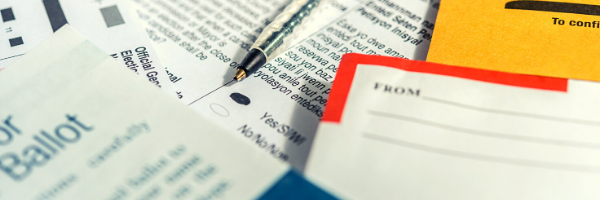Voters will decide two ballot measures in St. Louis, three ballot measures in Kansas City, and one ballot measure in Jefferson City, Missouri on April 5.
St. Louis:
St. Louis voters will decide on a bond issue for capital improvement projects and a citizen-initiated measure concerning election law, redistricting, and conflicts of interest.
Proposition 1, the bond issue, was referred to the ballot by the St. Louis Board of Aldermen. The measure would authorize the issuance of $50 million in general obligation bonds for capital improvement projects, such as public safety facilities, correctional facilities, pedestrian and bicycle transportation facilities, streets, buildings, and bridges, neighborhood recreation centers, and fire houses. A two-thirds (66.67%) supermajority vote is required for the approval of Proposition 1.
Proposition R was placed on the ballot through a citizen initiative petition supported by the campaign Reform St. Louis. The initiative would create a redistricting commission for drawing ward boundaries; require a public vote before a proposed change to voting methods can be adopted; and require alderpersons to declare personal or financial conflicts of interest and abstain from voting when there are conflicts of interest. Currently, in St. Louis, the Board of Aldermen are responsible for approving the decennial redistricting maps.
A campaign for a citizen-initiated measure must collect a number of signatures equal to at least 10% of registered voters at the last mayoral election. Reform St. Louis reported submitting about 39,000 signatures on Sept. 20, 2021. Board of Elections Director Benjamin Borgmeyer announced on Oct. 4, 2021 that the campaign had collected more valid signatures than the minimum requirement, which was 20,141.
Jami Cox, Policy Committee Chair of Reform St. Louis, said, “What’s at stake is making sure that the St Louis city government is operating in the most efficient and ethical way possible. If this proposition doesn’t pass, then we are looking at the redistricting process still being led by the people that are ultimately going to be running for the seats that they serve in and not having any hard outline processes in our city charter to reduce conflicts of interest.”
Board of Aldermen President Lewis Reed said, “There is no need to have a special election costing the taxpayers hundreds of thousands of dollars solely for a proposal that the Prop R group admits is untimely, would be challenged in court, would not put into effect what it states it will and would not take effect for 10 years.”
The Show Me Integrity Action Fund was registered as a political action committee (PAC) to support Proposition R. The PAC raised $134,484 according to campaign finance reports covering information through March 24, 2022. The top donor was the Center for Election Science, which provided $62,320. Vote NO Prop R was registered as a PAC to oppose Proposition R. The committee reported raising $2,635. The City of St. Louis Republican Party provided $2,453 to Vote NO Prop R.
Kansas City:
The Kansas City Council referred three measures to the April 5 ballot.
Question 1 would authorize the issuance of $750 million in revenue bonds for expanding, improving, and rehabilitating the city’s sanitary sewer system.
Question 2 would authorize the city to renew a property tax levy of $220 per $100,000 of assessed value to provide funds for emergency medical, ambulance, hospital, and public health services for 9 years.
Question 3 would remove 6.82 acres of vacant land, located on the west side of Searcy Creek Parkway between 210 Highway and Northeast 36th Street, from the park system.
Jefferson City:
The Jefferson City Council referred a bond measure to the ballot that would issue $44 million in revenue bonds for sewer system improvements, maintenance, and operations.
In 2022, Ballotpedia is covering local measures that appear on the ballot for voters within the top 100 largest cities in the U.S., all state capitals, and throughout the state of California. Ballotpedia is also covering a selection of notable police-related and election-related measures outside of the top 100 largest cities.


